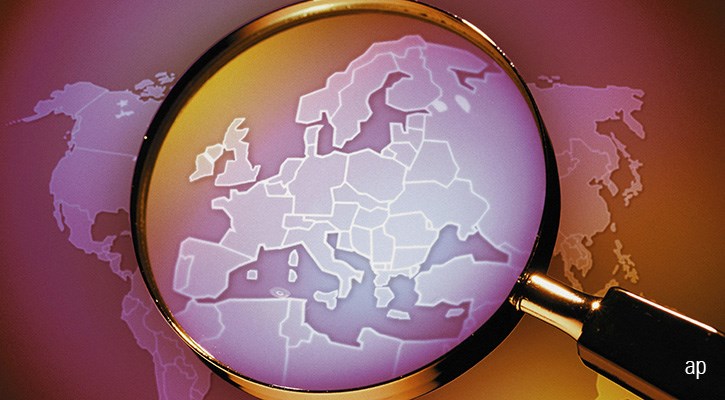
“Are you local?” was the question asked many a time in by Tubbs in League of Gentlemen.
It’s a question you should ask of your investment portfolio, too. Of course, Tubbs was trying to keep non-locals out of her strange village, whereas you should likely be thinking more about opening up the borders of your portfolio to the wider world.
It’s no surprise that the majority of people have “Home Bias” in their portfolio – that is, we have the majority of our assets invested in our domestic stock market or home-grown bonds. Us humans are creatures of habit and we crave the familiar. We want to invest in stocks we already know and love, it makes them easier to understand and often it makes us feel as though we own a small slither of a brand we identify with.
While globalisation has made the world smaller and broadened our horizons, it hasn’t broadened our investment portfolios. That’s a problem because it leaves us vulnerable to the movements of one stock market, and it’s a problem because indices are usually heavily concentrated in certain sectors (think banks and oil on the FTSE 100, or tech stocks on the US Nasdaq), leaving us vulnerable to the performance of one or two industries.
It's something I addressed in my own portfolio a few years ago, when I realised that four of the six funds I held at the time had a major UK skew. Today my only specific UK exposure is through a UK smaller companies investment trust but I'm still aware that there is comfort in the global and US-focused funds I hold, because I recognise the names they invest in.
It’s strange that we allow this bias to creep in when so many of us pride ourselves on being broad-based. We claim to have an eclectic taste in music, to enjoy travelling to experience different cultures, and to crave foods from different regions of the world. We should really think about putting this into practice in our portfolios too.
Worth the Risk?
It’s a commonly held belief that in investing, greater risk means greater returns. But it’s not always true. If it were, then we’d all ramp up the risk in the happy knowledge it would all work out in the end.
But our analysis this week showed that sometimes taking a more cautious approach can really pay off. We looked at the average returns of cautious, moderate and adventurous funds over the past five years and guess which one came out worst? (Or don’t guess – read the article).
This year has been a tumultuous one for global stock markets, but if we look back further than just the past few months, it’s clear it hasn’t always been plain sailing. Trade tensions between the US and China, Brexit and a UK General Election are just a few of the issues that markets have had to grapple with in recent years.
The idea of long-term investing is that you hold your stocks long enough that they recover from such sell-offs, but that can take longer than you think. And this is why we often say that investing is just as much about the journey as the end point. Because if you can’t wait long enough for that recovery, or waiting for it is going to cause you sleepless nights – maybe the cautious fund is the better choice. Particularly if it can beat its bolder counterpart in the interim.
Good Money Week
This week is Good Money Week. I’m not sure who decides this stuff – apparently this week the world also celebrated National Cat Day (29th), National Oatmeal Day (also 29th) and National Mincemeat Day (26th). It was a big week!
Good Money Week asks us to think about sustainable and ethical choices when it comes to our savings, pensions and investments. That is, perhaps, more important this year than any other, I think.
In the middle of a global pandemic, on the brink of tougher lockdown measures, and with (dare I say it) Christmas on its way, I’ve been thinking more than ever about what I do with my money and whether I’m putting any good out into the world with my choices.
That doesn’t mean I’ve rushed out and bought a load of ethical funds, but it does mean I’m making a real effort to shop locally where possible and to “pay it forward” by popping an extra £1 in a charity tin where I can or taking advantage of the local coffee shop’s initiative to buy a drink for someone who can’t afford their own.
Good Money Week is great if it starts a conversation or gets us thinking about all this, but keeping this going over the long-term is how we really do good.



























